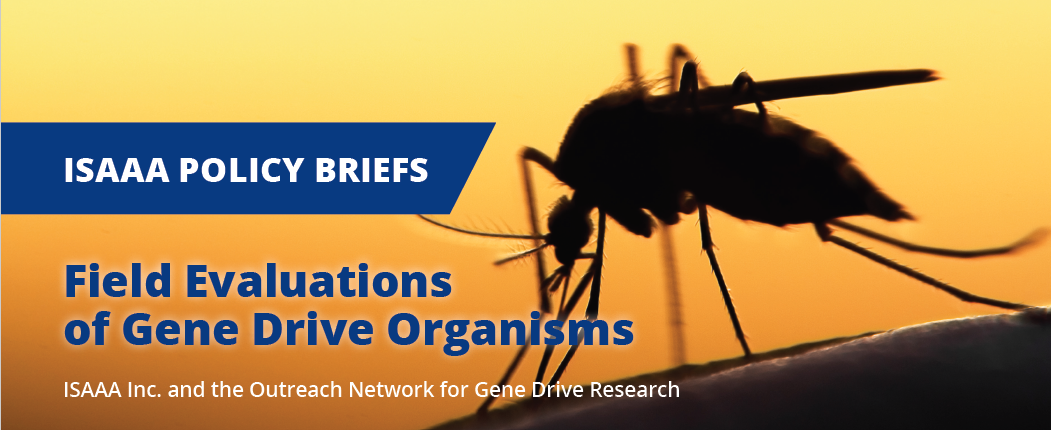Current developments in gene drive research suggest that gene drive technologies have the potential to help address some of the challenges posed by invasive alien species and vector-borne diseases. However, before a specific gene drive organism could be considered for use, it would have to undergo an extensive experimental testing and risk assessment process, to ensure that it is effective and safe. Field evaluations, which involve releasing experimental gene drive organisms into the environment, are a fundamental step of this process.
A new policy brief developed by the Outreach Network for Gene Drive Research in collaboration with the ISAAA SEAsiaCenter provides an overview of the key considerations that need to be taken into account before conducting field evaluations involving a gene drive organism. The brief, titled Field Evaluations of Gene Drive Organisms, sheds light on the design, approval, and oversight process for field evaluations.

One of the brief’s key recommendations is that any field release should be the result of a step-by-step approach to developing a proposed gene drive application. This means building on years of prior data and research to ensure that the proposed application is safe and effective.
The policy brief also provides a set of recommendations related to the regulation of gene drive research, which ultimately takes place at the national level. National authorities have a key role to play as decision-makers both in designing and implementing the regulatory frameworks that will govern potential field trials, as well as in determining whether their results support broader uptake and use of a proposed gene drive application.
In order for decision-making to be effective, capacity-building and strong national biosafety frameworks are key. Additionally, building national capacity in areas such as entomology, bioinformatics, ecology, and molecular biology is essential to ensure that there are experts with the knowledge and capacity to conduct monitoring and surveillance, and to contribute to the design and implementation of field studies in the relevant countries.
Interested in learning more on the topic? Read the full policy brief here.
Recent posts
